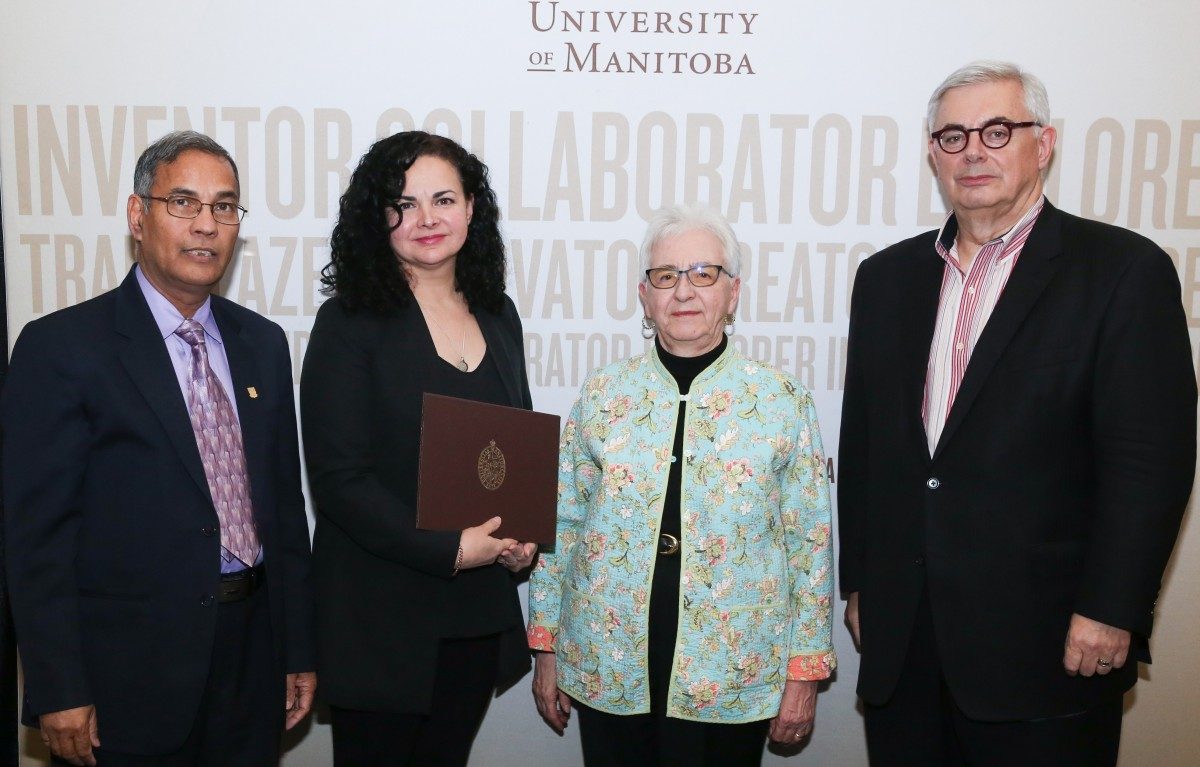
Left to right, Dr. Digvir Jayas, Vice President (Research & International) stands with Dr. Mary J. Shariff, Associate Professor, Faculty of Law, Dr. Juliette (Archie) Cooper, Chair of the Winnipeg Rh Institute Foundation Board, and Dr. David Barnard, President and Vice Chancellor, University of Manitoba.
Researching laws of compassion and vulnerability
Law professor Mary J. Shariff receives Falconer Rh Emerging Researcher award for work on laws around termination of life
Robson Hall Faculty of Law professor Mary J. Shariff [LLB/02] was presented with one of the 2017 Terry G. Falconer Memorial Rh Institute Foundation Emerging Researcher Awards at a special reception held April 10, 2018 at St. John’s College on the University of Manitoba Fort Garry Campus.
The Terry G. Falconer Memorial Rh Institute Foundation Emerging Researcher Awards are awarded to faculty members in the early stages of their careers who display exceptional innovation, leadership and promise in their chosen fields.
Dr. Shariff won her award in the field of the Humanities for her research focusing on the contemporary, controversial practice of termination of life, in Canada known as “medical assistance in dying”. A member of the Robson Hall law faculty since 2007, she has researched and published widely on the subject of palliative care and medical assistance in dying, exploring the substance, boundaries and trajectories of termination of life practice. She examines termination of life through: the different mechanisms of law reform (e.g. court cases versus legislative processes); the ethical, philosophical and social descriptors and arguments (e.g. dignity, autonomy, relief of suffering, compassion); legal strategies and translation into legal vehicles and human rights concepts (e.g. rights to life, liberty, security and equality); monitoring and compliance regulation; and its legal interface with other critical protections, social goals and objectives (including palliative care, vulnerability, disability, aging, the social determinants of health and freedom of conscience). Through a comparative laws approach, Mary’s research helps to identify and unpack different policy concerns to be considered as termination of life practice continues to unfold and becomes operationalized.






